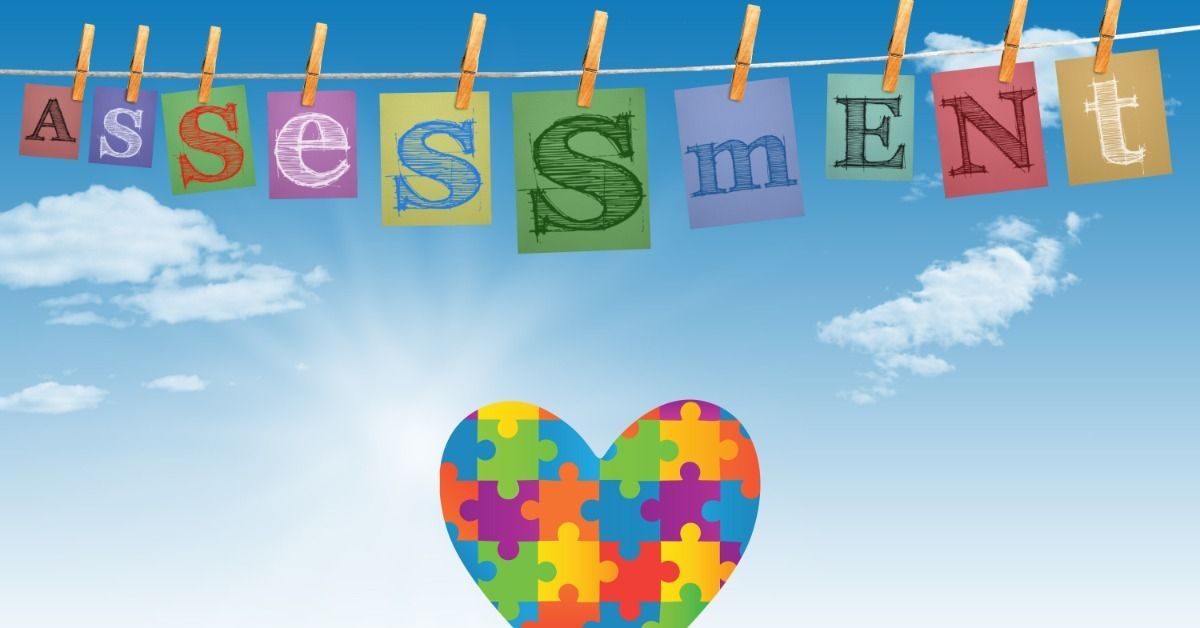Who Can Perform an Autism Assessment or Evaluation?
Parents who suspect their child might have autism often face a major question: Who can perform an autism assessment or evaluation? This crucial decision affects not only the accuracy of the diagnosis but also your child's access to appropriate support and intervention services.
Early identification of autism spectrum disorder (ASD) can transform a child's developmental trajectory. Children diagnosed between the ages of 2 and 10 show the most significant improvement when they receive timely, evidence-based interventions. However, navigating the complex landscape of autism assessment providers can feel overwhelming for families seeking answers.
This comprehensive guide will walk you through the qualified professionals who can diagnose autism, explain what happens during the evaluation process, and help you find the right provider for your child's unique needs. Understanding your options empowers you to make informed decisions that set your child up for success.
Understanding Autism Assessments
An autism assessment is a comprehensive clinical evaluation designed to determine whether a child meets the diagnostic criteria for Autism Spectrum Disorder. These evaluations go far beyond simple questionnaires or brief observations. Qualified professionals conduct thorough behavioral observations, review developmental history, interview family members, and administer standardized diagnostic tools.
Each assessment is tailored to the individual child's age, developmental level, and specific concerns. The process typically spans multiple sessions and involves gathering information from various sources, including parents, teachers, and other caregivers who interact with the child regularly.
Why Early Assessment Matters
Research consistently demonstrates that early identification and intervention significantly improve outcomes for children with autism. When families receive an accurate diagnosis during the critical early years, they gain access to specialized therapies, educational accommodations, and support services that can dramatically enhance their child's communication, social skills, and overall quality of life.
Early assessment also provides families with clarity and direction. Parents often describe feeling relieved to finally understand their child's unique needs and to have a roadmap for moving forward with appropriate support.
Professionals Who Can Perform an Autism Assessment

Several types of professionals contribute to autism assessments, each offering specialized expertise that supports an accurate diagnosis and comprehensive care.
Developmental Pediatricians
Developmental pediatricians specialize in evaluating children's developmental milestones and identifying delays or differences. These medical doctors often serve as the first step in the referral and diagnosis process. They possess extensive training in child development, making them uniquely qualified to recognize early signs of autism.
Many families find that developmental pediatricians provide an excellent starting point because they can address both developmental concerns and any co-occurring medical conditions. They also maintain strong networks of specialists and can facilitate referrals to additional services when needed.
Child Psychologists and Neuropsychologists
Child psychologists and neuropsychologists conduct in-depth cognitive and behavioral assessments that form the cornerstone of autism evaluation. These professionals excel at differential diagnosis, distinguishing autism from other developmental challenges such as language delays, anxiety disorders, and intellectual disabilities.
Their comprehensive approach typically includes cognitive assessments, behavioral observations, and a detailed analysis of social communication patterns. This thorough evaluation helps ensure accurate diagnosis and appropriate treatment recommendations.
Pediatric Neurologists
Pediatric neurologists evaluate the neurological and genetic components that may contribute to autism spectrum disorder. Families often consult these specialists when healthcare providers suspect co-occurring conditions such as seizures, genetic syndromes, or other neurological differences.
While pediatric neurologists can diagnose autism, they frequently work as part of a multidisciplinary team to provide comprehensive care that addresses the condition’s neurological and developmental aspects.
Licensed Clinical Psychologists
Licensed clinical psychologists who specialize in autism assessments administer standardized diagnostic tools such as the Autism Diagnostic Observation Schedule (ADOS-2) and the Childhood Autism Rating Scale (CARS). These professionals receive specialized training in autism assessment and can provide formal diagnoses.
Many clinical psychologists also offer ongoing therapy services, creating a continuity of care from assessment through treatment. This approach can be particularly beneficial for families who prefer to work with a single provider throughout their child's developmental journey.
Speech-Language Pathologists
Speech-language pathologists (SLPs) evaluate communication and language development, which represents a core area of difference for children with autism. While SLPs typically don't diagnose autism independently, they contribute essential data to the evaluation process.
These professionals assess both verbal and nonverbal communication skills, social communication patterns, and pragmatic language abilities. Their insights prove invaluable in understanding a child's communication profile and developing appropriate intervention strategies.
What To Expect During the Evaluation Process
The autism evaluation process typically begins with a referral, which can come from pediatricians, educators, therapists, or parents themselves. Families don’t need to wait for a professional to raise concerns. They can directly contact qualified providers if they notice developmental differences. During the intake phase, evaluators collect detailed information about the child’s development, current concerns, and family background. This helps tailor the assessment to focus on the most relevant areas. Using evidence-based tools like the ADOS-2, CARS, and Vineland Adaptive Behavior Scales, professionals observe the child’s communication, social interaction, and behaviors through structured activities in a supportive environment.
Parent and caregiver involvement play a central role in the evaluation. Families share critical insights about the child’s day-to-day functioning, including behaviors at home, school, and in the community. Interviews and questionnaires help providers understand how autism traits appear in different settings.
Where Autism Assessments Typically Take Place
Autism assessments can occur in a variety of settings, each offering unique advantages in terms of access, comprehensiveness, and support services.
Hospitals and Academic Medical Centers
Many hospitals and academic medical centers offer comprehensive autism evaluations through multidisciplinary teams. These settings often provide the most thorough assessments, involving multiple specialists who collaborate to develop a complete picture of the child's needs.
However, these comprehensive programs frequently have longer waitlists due to high demand. Families should consider this timing when planning their assessment timeline.
Private Practices and Community Clinics
Private practices and community clinics may offer faster access to autism assessments while maintaining high-quality standards. Many of these providers accept insurance and offer comprehensive evaluations that rival those found in larger medical centers.
These settings often provide more flexible scheduling and personalized attention, which can be beneficial for families with specific timing needs or children who require accommodations during the assessment process.
Early Intervention and School-Based Evaluations
Early intervention programs and school districts can provide initial screenings and educational evaluations. While these assessments don't substitute for a medical diagnosis, they can identify children who need additional support and facilitate referrals to qualified diagnostic providers.
Although school-based evaluations focus primarily on educational needs rather than medical diagnosis, they play an important role in ensuring children receive appropriate services while families pursue a formal medical evaluation.
The Role of Autism Therapists in Ongoing Care

While autism therapists such as Applied Behavior Analysis (ABA) therapists typically don't diagnose ASD, they play crucial roles after diagnosis. These professionals use evaluation results to develop individualized therapy plans that address specific skill areas and behavioral goals.
The assessment process provides the foundation for effective therapy by identifying each child's unique strengths and challenges. This information guides treatment planning and helps families understand what types of intervention might be most beneficial.
Taking the Next Step Forward
The question of who can perform an autism assessment or evaluation depends on your child's specific needs, your family's preferences, and available resources in your community. The most important factor is choosing qualified professionals who specialize in autism assessments and understand child development.
Parents should trust their instincts and advocate persistently for their children. If you suspect your child might have autism, don't wait for someone else to suggest an evaluation. An early assessment opens doors to support services that can make a profound difference in your child's development and your family's quality of life.






